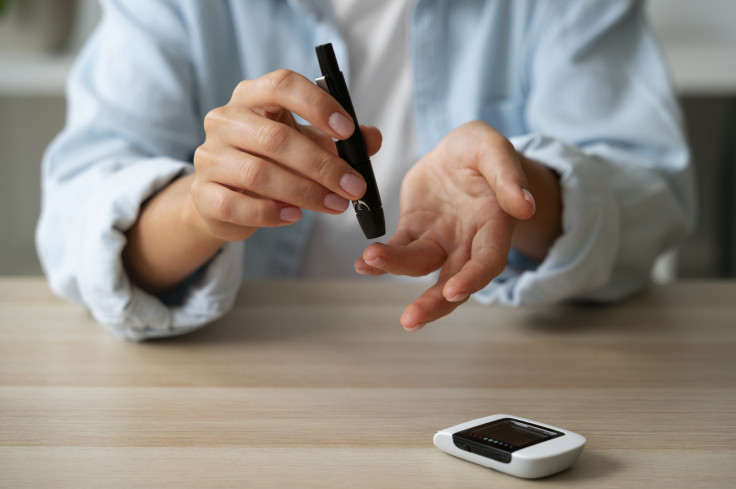Drug-Free Treatment For Diabetes? Study Says Red Light Therapy Could Reduce Blood Sugar Levels

A combination of medications, insulin injections, and lifestyle modifications is recommended for managing diabetes. However, a new study has uncovered a potential drug-free treatment for diabetes, as researchers noted a significant reduction in blood sugar levels after a single session of a 15-minute red light therapy.
Red light therapy uses low-wavelength red light to address various skin concerns such as wrinkles, redness, acne, and scars, combating signs of aging. Researchers are actively exploring its potential applications in the treatment of other medical conditions beyond dermatological issues.
In the study published in the Journal of Biophotonics, researchers found that exposing healthy individuals to 670 nanometers (nm) of red light stimulated energy production within their mitochondria, the cell's powerhouses, which can in turn lead to an increased consumption of glucose.
The researchers conducted the study among 30 healthy participants who had no metabolic conditions or who were not on any medication. They were randomly assigned to two groups: a group where participants were exposed to 15 minutes of 670 nanometers of red light and a placebo group where participants were not exposed to any light.
The participants had to complete an oral glucose tolerance test and record their blood sugar levels every 15 minutes for the next two hours.
The analysis showed that the red light therapy resulted in a 27.7% reduction in blood glucose levels following glucose intake and reduced maximum glucose spiking by 7.5%.
Although the study was conducted among people without diabetes, researchers hope their findings could be helpful for those with the condition.
"It is clear that light affects the way mitochondria function and this impacts our bodies at a cellular and physiological level. Our study has shown that we can use a single, 15-minute exposure to red light to reduce blood sugar levels after eating. While this has only been done in healthy individuals in this paper, it has the potential to impact diabetes control going forward, as it could help to reduce potentially damaging glucose spikes in the body after meals," study author, Dr. Michael Powner, said in a news release.
Apart from the potential benefit of red light therapy, the study also highlights the significant long-term consequences of blue light for human health, including blood sugar dysregulation. The findings gain significance, especially considering the growing prevalence of LED lighting, which emits a higher proportion of blue light and less red light.



























